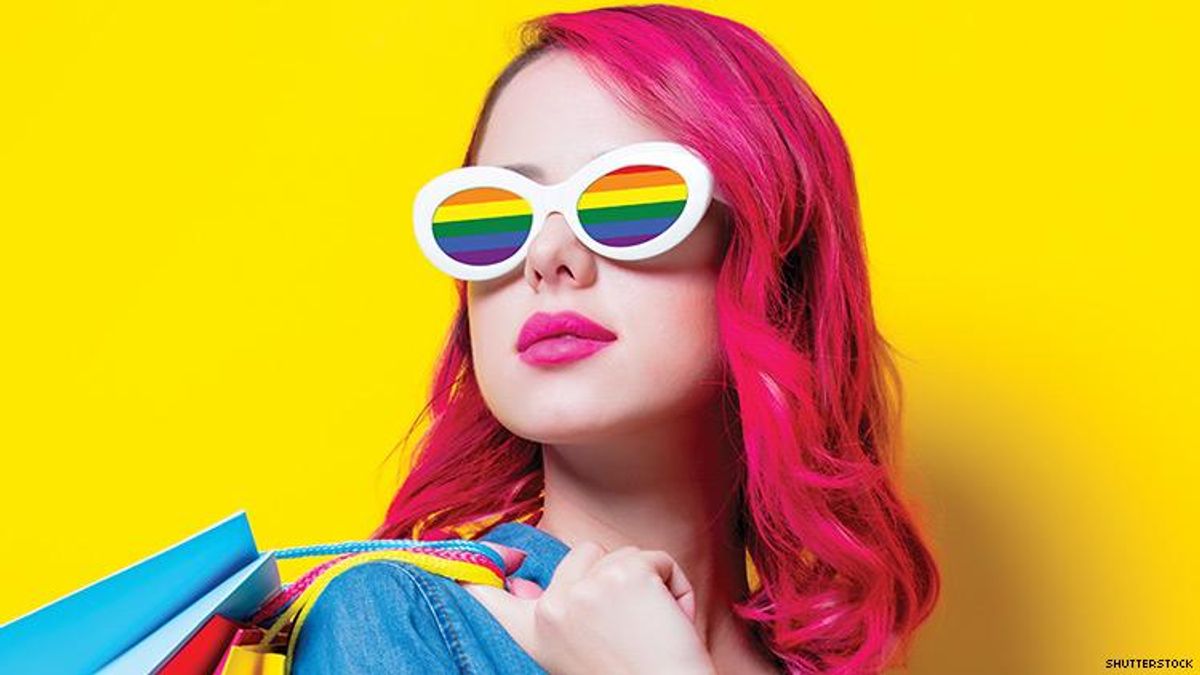The LGBTQ dollar is a significant contributor to the U.S. economy, and yet it's also one of the more underrated. Last summer, the Supreme Court ruled in favor of a Colorado baker who refused to make a cake for a same-sex couple's wedding, making it clear that a business owner's personal views can impact who they offer services for.
But while the ruling was a disappointing setback for LGBTQ rights and undoubtedly fueled the religious right's bigotry, it also taught us that we as queer consumers don't need to let it happen. A new public education campaign is making it easier to put our money where our values are.
Open to All is a nationwide initiative to build awareness about the importance of protecting people from discrimination by defending the bedrock principle that when businesses open their doors to the public, they are indeed open to all. Thousands of businesses -- large and small -- have made the Open to All pledge to maintain a welcoming and safe environment for people (employees, visitors, customers, vendors, and clients), regardless of race, ethnicity, national origin, sex, sexual orientation, gender identity and expression, religion, or ability.
By displaying the Open to All sticker in a storefront's window, consumers know the business is a safe space for everyone.
According to a 2015 consumer confidence report by Nielsen, LGBTQ households make 10 percent more shopping trips in a year than the average U.S. household. LGBTQ-owned businesses add $1.7 trillion to the U.S. economy, according to a report by the National LGBT Chamber of Commerce. Armed with this knowledge, it's important that queer consumers hold business owners accountable.
So far, companies like Levi Strauss, Marriott International Inc. (with its over 6,700 properties in 130 countries), Lyft, and Yelp have taken the Open to All pledge, as well as 1,500 small businesses and 200 non-profits. Those who do are encouraged to activate the new "Open to All" option on their Yelp page, which will publicly display to customers that the business has taken the pledge.
Recently, Gap Inc. joined the initiative -- which means that over 135,000 employees in their nearly 2,300 stores (including Gap, Banana Republic, Old Navy, Athlete, and Intermix) will be taking a visible stand to make sure all shoppers know they are welcome. All of their retail outlets, as well as the company's headquarters in San Francisco, New York City, and Albuquerque, N.M., will be posting Open to All signs. And you better believe that consumers are paying attention.
A new Harris Poll, conducted in conjunction with Out & Equal Workplace Advocates, found that 75 percent of Americans believe when a business opens their doors to the public, they should be open to all and serve everyone on the same terms. Gap Inc., ranked one of the world's most diverse and inclusive companies for the second consecutive year in the annual Thomson Reuters Global Diversity and Inclusion Index, is sure to lead other large corporations into the mix.
"Since our founding nearly 50 years ago, our company values have led the way we run our business," Art Peck, president and chief executive officer at Gap Inc., said in a statement. "Together, our brands celebrate equality for all in our workplaces and communities globally. Not only does this foster inclusivity, creativity, and contribute to a more just world, it also helps us be more competitive in the marketplace and better serve our customers."
Top businesses across the country are quickly joining forces to oppose discrimination and declare that they are Open to All. Those who sign the pledge receive a window cling to display in their store, and the business's name is added to an online listing.
"In a time when many people of color, LGBT people, people of minority faiths, and many others still can't be sure they won't be discriminated against when they seek goods or services, it is more important than ever for businesses to affirm inclusive values," said Calla Rongerude, campaign manager of Open to All.


















































































